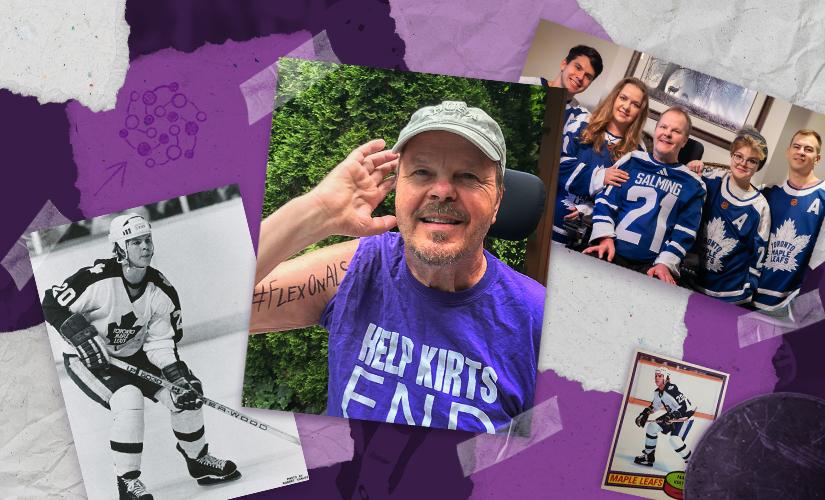Why We Give: Mark Kirton
February 14, 2024
10 min read
Meet the retired NHL player who’s changing the game and defying odds in his relentless pursuit of a cure for ALS.
To say Mark Kirton is inspiring barely scratches the surface. In 2018, the former NHL player (1978-1989) was diagnosed with Amyotrophic lateral sclerosis (ALS); a ruthless disease that systematically disconnects the mind from muscle, stripping away basic functions—eating, swallowing, moving—until it steals the breath itself.
The average life expectancy after an ALS diagnosis is two to five years, but Mark has never been one to back down from a fight. Over six years after his initial diagnosis, Mark continues to shatter expectations and confront ALS with unshakable determination. And he isn’t only playing defence- he’s rallying the nation to wage war on ALS in the name of all Canadians facing the disease.
In a conversation marked by a profound love and devotion to his family, Mark gives us all a master class in resilience, community, and the immeasurable power of hope.
What led up to your ALS diagnosis?
It all started back in 2015 when I had my first symptom, which was twitching in my right bicep. We all have twitches here and there, so I didn’t think much of it at the time, but this was different. It went on for 24 hours a day and was a loud twitch. After that, my fingers started to spread on my right hand. I started to lose strength, and I would drop things. I lost a lot of strength very quickly in my right arm, and then it moved around like a clock to my left arm, then my left leg, then to my right leg to my shoulders. Then there was a fall here and a fall there, which was unusual for a guy who had pretty good balance to skate.
I was eventually diagnosed with ALS, or Lou Gehrig’s disease, back in 2018, and now I’m fighting not only for my life but for the thousands of Canadian families suffering from this horrible disease. It has progressed slowly in my body, but now I’m hitting some very uncomfortable spots.
Ultimately, ALS affects your motor neurons and takes away your bodily movements. Piece by piece, it takes away your ability to eat, to move, and eventually, it takes away your breath. It’s a torturous illness that affects not only the person that’s diagnosed but also the families and loved ones who become the primary caregivers.
What keeps you so optimistic and motivated?
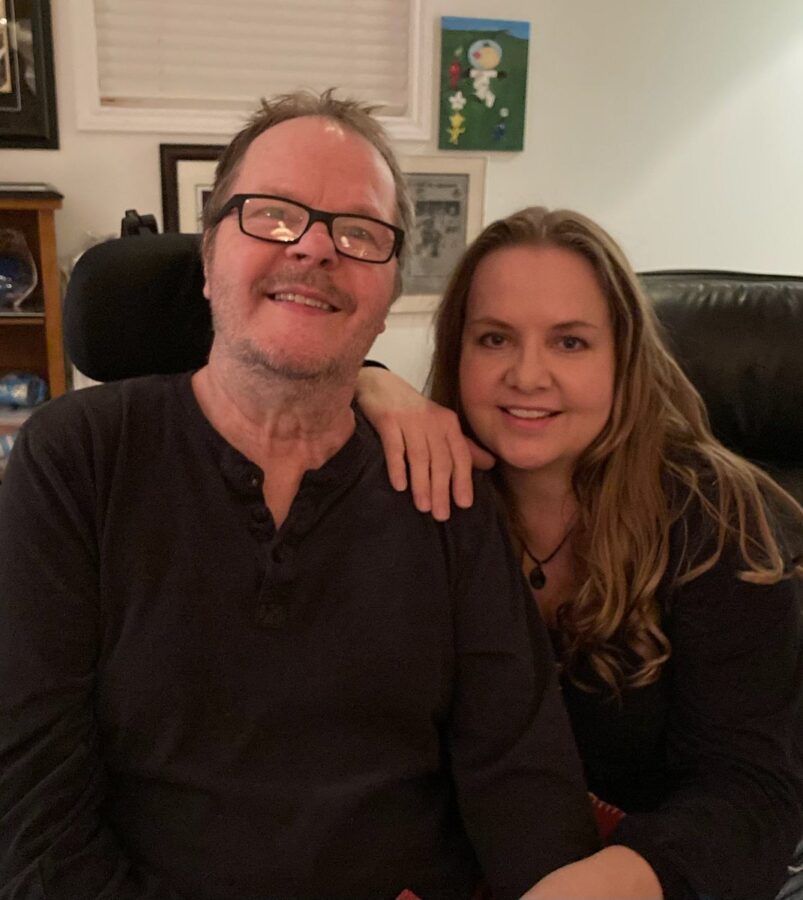
Before my 2018 diagnosis, we were happy and looking forward to the future. We raised three kids and worked so hard, and then when diagnosed, in a matter of seconds, it felt like it was all snatched away from us. When you’re given a diagnosis with no cure, it hits you like a ton of bricks.
When my wife and I left the hospital, we talked about it and figured we had two options: go hide in a corner and say, “Why me?” or come out fighting and use whatever platform we have to advocate– which, in my case, is professional hockey.
The journey is similar to trying to make it to the NHL. You have to be so disciplined and driven that nothing can stop you. Almost brainwashing. That’s the attitude I had to take—that nothing would stop me from being optimistic and keeping things as close to normal as possible.
I won’t allow depression to seep in. No negativity, and just focus on what I can accomplish through advocacy to make a difference. I refuse to accept pity. As a matter of fact, I told my friends if they wanted to support me, to never treat me any differently than they did pre-ALS.
How has your diagnosis impacted your family?
I know that ALS doesn’t just affect me. It has a huge impact on my wife and kids. When I was diagnosed, in essence, my family was, too. As a father and husband who loves his family, I feel their pain. I mean, they’re my arms and legs and emotional support. They are virtually sacrificing their lives to help me. Another reason why is I try and keep a positive attitude. Keeping everyone upbeat is what I strive for each and every day.
But at the same time, we’re in this together, and they recognize and support work that is being done with the ALS Super Fund and the reach of support for many other families that are suffering. I have always said, that a strong faith, close family and supportive friends are 3 pretty good reasons to make you want to fight the fight.
What drove you to dedicate yourself to advocacy?
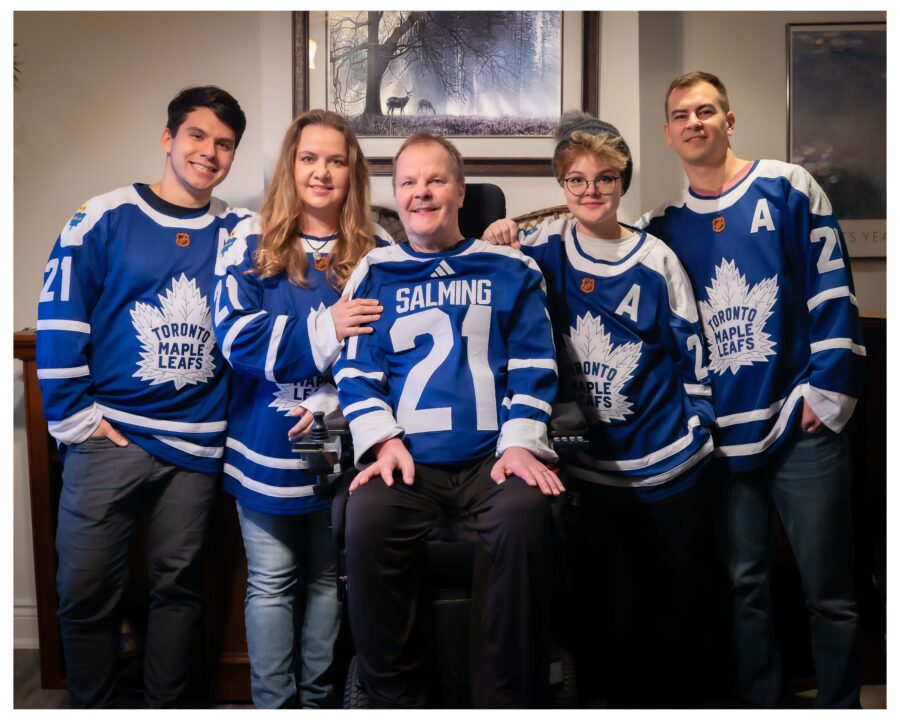
To be honest, I didn’t know much about the disease, but I knew that many other athletes had been diagnosed. I did some research and listed as many current and former pro athletes I could find who have or had ALS, and I came up with 80 names without too much effort.
I reached out to some of them to talk about our shared experience. What’s amazing about these ALS-inflicted people is that they are so positive. It’s like they all have the hearts of lions. It dawned on me that what this illness needs is the power of patients’ voices. So, I started getting involved and using mine.
About 3 years ago, I joined a group called ALS Action Canada (ALSAC) a fantastic group led by ALS patients across Canada, who are fighting for faster drug approval pathways and easier access to therapies, more clinical trials throughout Canada and increased government funding for ALS research. So many incredible people in this group donate their time and talent in order to help end this disease. That’s the thing- it’s not just all about donations and fundraising. It’s about patients coming together to have their voices heard to make a difference in the ALS world.
How can Canadians know what ALS charities to give to?
This is the beauty of the ALS Super Fund – you don’t have to be an expert to give where the need is greatest because a panel of experts will do that for you and report back on the progress. A huge piece of what makes it so unique is the Advisory Council. This is an all-star team of researchers, clinicians, neurologists, as well as patients and caregivers living with the disease, who meet regularly and are tasked with ensuring that resources are allocated to support finding a cure for ALS across the country. Primarily in research.
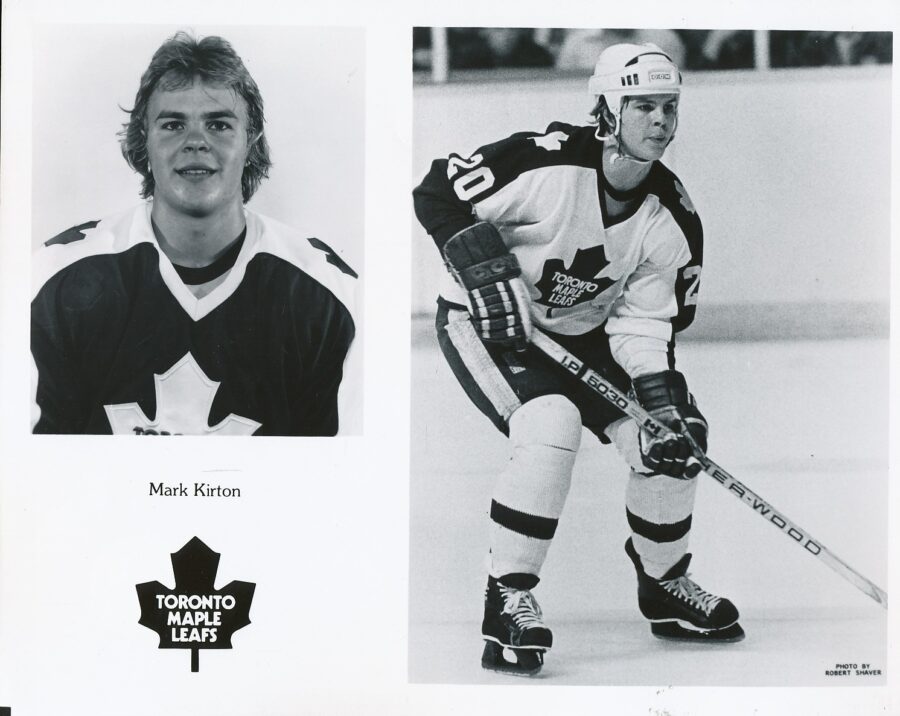
Does your experience as an NHL player translate into your advocacy work?
In all honesty, you don’t make it to the NHL unless you’re driven. So yes, the answer would be yes. I think I’ve always been a driven, competitive guy who strives to be a good teammate, no matter what I’m involved in. That still means something when you have ALS.
The stress and anxiety when you can’t move isn’t easy to describe…it is incredibly difficult at times. But I am a relentless, driven guy and don’t believe in the word “quit.” I think that’s one of the reasons why I’ve surpassed the average 2 to 5-year lifespan. The other is because of my faith I am sure that the Lord had plans for me to advocate and to support other ALS families.
How has the NHL’s support and media coverage impacted the success of the ALS Super Fund’s mission?
I’ve always said for NHL players, whether you’re a current player or an Alumni, they always have each other’s back. Have also always had a good relationship with the sports media over the years. And now ALS has hit the hockey world dramatically. Chris Snow, the assistant general manager of the Calgary Flames, passed in the fall of 2023 after a four-year battle with ALS. He was just 42 years old. In 2022, NHL defenseman Borje Salming passed away less than a year after he had been diagnosed with ALS. Now, the assistant coach in Ottawa, Bob Jones has been diagnosed, and there are others.
When we approached the seven Canadian NHL teams to support the Super Fund, all seven agreed. The fact that they’re arm in arm is really huge, and I’m humbled and so thankful. When the general public sees that these NHL clubs are behind this and supporting it, they may rally. And if they rally, we can raise more funds and get a lot more trials going, ultimately getting closer to finding a cure.
What do you hope to see your advocacy accomplish?
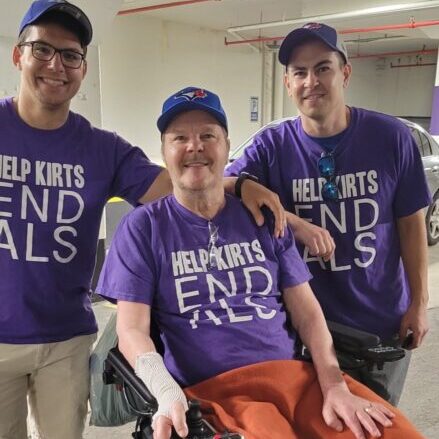
I believe the patient’s voice is going to be what counts and makes the biggest difference in the ALS world. We have to foster pathways and approvals for drugs and get these drugs into a retail space out there regardless of whether a patient qualifies or not. Every patient deserves the right to try and use an approved drug.
We need to work a lot harder to bring trials into Canada and actually look after patients and families suffering from ALS better. The cost absorbed by an ALS family can be outrageous and many cannot afford it. We hope the powers within the government notice that we are speaking as one united patient voice and that we are fighting for funding, support and help.
There are over 190 trials worldwide, and it’s just a matter of time until someone finds a cure. I truly believe that because of all the ALS advocacy of the last 3 to 4 years, we are seriously years away from finding a cure versus decades. And to be a part of that ALS advocacy uptick is special.
There are so many things I’d still like to do; it’s just whether I have enough time to do them. Ultimately, I can’t control how much time I have, but I can control how I use it. I plan to capture every moment, every day, with the people I love and make them feel proud that they battled right along beside me right to the end.

